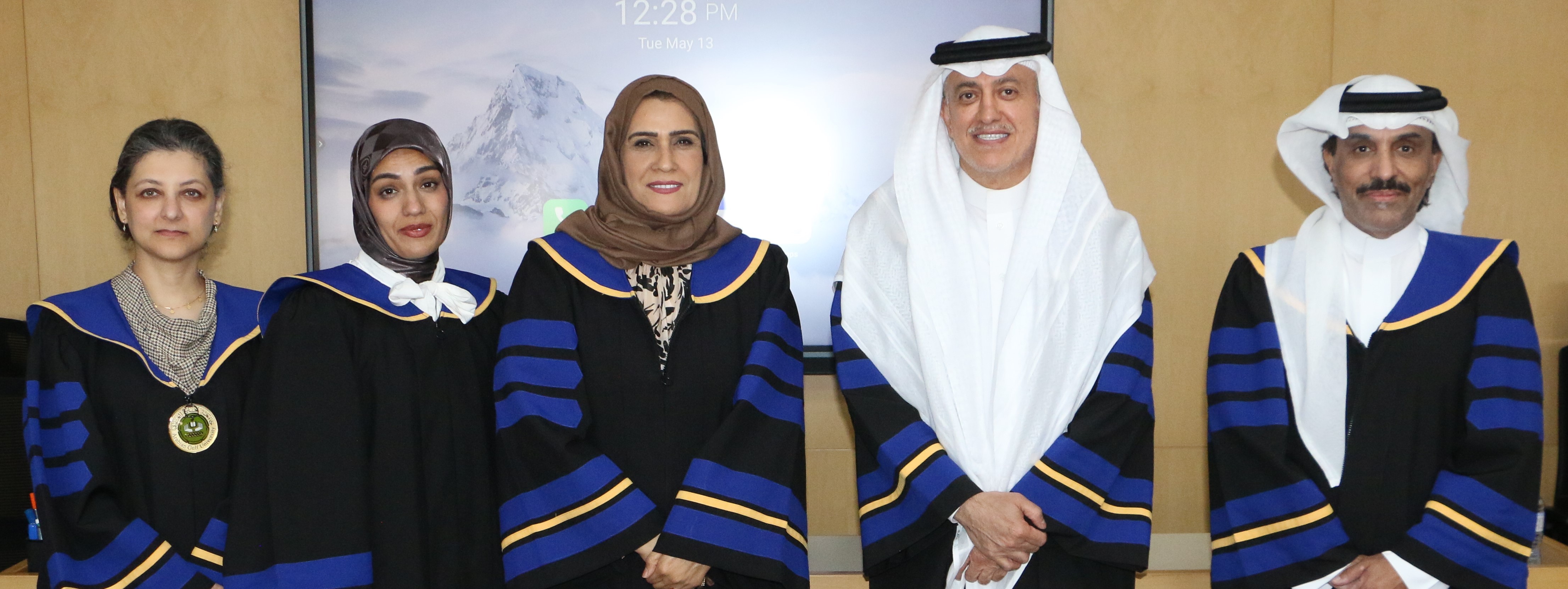
AGU Researcher Examines Forms of Bullying Directed at Students with Autism Spectrum Disorder in Inclusive Schools from the Perspective of Their Teachers
Arabian Gulf University
28 Aug, 2025
Ms. Fatema Hassan Fardan, a researcher in the Learning Difficulties and Developmental Disabilities Programme at the College of Education, Administrative and Technical Sciences at the Arabian Gulf University (AGU), investigated the forms of bullying directed at students with Autism Spectrum Disorder (ASD) in inclusive schools in the Kingdom of Bahrain, from the perspective of their teachers.
The study aimed to identify the types of bullying and to examine whether there were statistically significant differences linked to variables such as teachers’ academic qualifications, gender, training courses, years of experience and type of school (public or private).
The researcher adopted a comparative descriptive methodology as part of the requirements for a Master’s degree in Autism. She applied a scale to measure various forms of bullying: verbal bullying, physical bullying, social bullying, cyberbullying and damage to personal property. The study sample comprised 90 male and female teachers from both public and private schools.
The results showed that all forms of bullying were at a very low level, with verbal bullying ranking the highest, while cyberbullying and damage to personal property were the lowest. The findings also indicated no statistically significant differences in the forms of bullying attributed to any of the studied variables.
The researcher recommended implementing specialised training programmes on mechanisms for detecting and addressing bullying in the classroom, enhancing the role of school counselling in providing psychological and social support for students with ASD, and developing more accurate measurement tools to identify indirect forms of bullying.
She explained that bullying takes multiple forms, the most notable being: physical bullying, which involves aggressive behaviours causing physical harm to the victim such as pushing, kicking, or hitting; verbal bullying through the use of offensive words such as insults, shouting, threats, and ridicule; social bullying aimed at socially isolating the victim, such as spreading rumours or influencing others to reject them; and cyberbullying carried out via digital platforms, such as sending abusive messages or defaming victims on social media.
She added: “Bullying directed at students with Autism Spectrum Disorder is a critical issue due to its clear and long-term negative impacts across psychological and social dimensions. Victims of bullying often suffer from low self-esteem, increased levels of anxiety, depression and fear, which in turn affect their academic and professional performance, social relationships and overall lifestyle. Based on this, the study sought to identify the forms of bullying faced by these students through teachers’ evaluations, in relation to their experiences, academic qualifications, training courses and gender.”
The research, supervised by Prof. Mariam Al Shurooqi, Professor of Special Education, as the main supervisor, and Dr Wid Hussain Daghustani, Associate Professor in the Department of Special Education, as co-supervisor, recommended future studies focusing on the effectiveness of preventive programmes in reducing bullying rates, exploring the impact of using digital technology in reducing cyberbullying, and analysing the relationship between bullying and academic achievement in light of cultural and social differences.
The examination committee consisted of Prof. Bandar Al Otaibi, Professor of Special Education, as internal examiner, and Prof. Ibrahim Al Othman, Professor of Special Education at King Saud University, as external examiner.
